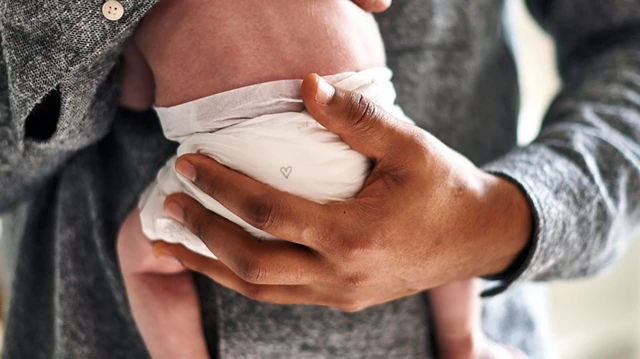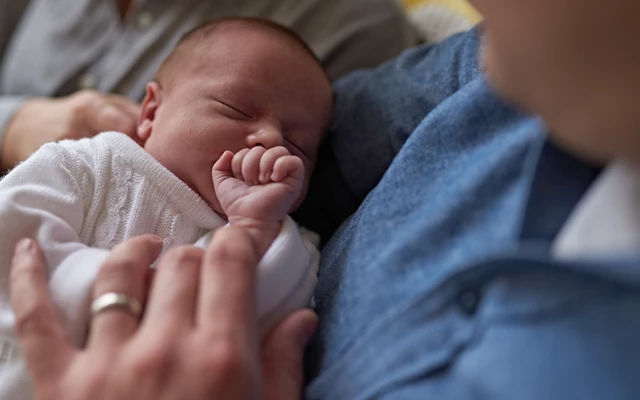After giving birth, your partner’s body will take a while to return to its pre-pregnancy state. Rather than rushing into slimming back down, it’s a good idea for your partner to take it easy – she’ll get plenty of exercise looking after your new baby.
It’s entirely normal for your partner to bleed or feel sore and bruised down below for a few weeks after birth. It’s also not uncommon for women to develop haemorrhoids, but these tend to clear up in a matter of weeks.
As your partner begins to lactate, her breasts can get hot and tender, and she may develop cracked nipples. Your midwife will be able to help your partner with breastfeeding techniques, so encourage her to ask if she’s having any problems. For help out of hours, try our video guides on breastfeeding and breastfeeding positions.








